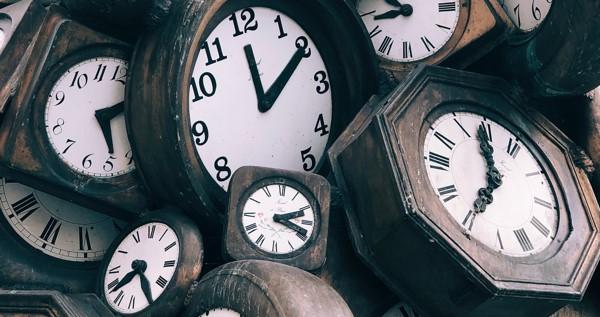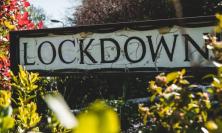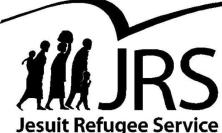If you are finding yourself more aware of time than ever at the moment, you are sharing something of the experience of a group of refugees who have been reflecting with Dr Anna Rowlands on the impact of the distortion of time. What does it mean to spend time well, and how might our collective experience of the current restrictions affect the way we impose them on others in future?
Time – and how we spend it – has suddenly become a major topic of social discussion. Recent media chat is full of interesting, earnest, sad, even humorous, exchanges about two themes in particular: what does it mean to spend time well? And what happens to us when those markers of time change suddenly, in a way that is beyond our control?
Droll contributors note that the only differentiating factor that marks a day now is whether it’s time to drink coffee or wine. More earnest voices ask whether you’ve maxed your commitment to learning new skills, found ways to be even more productive and managed to beast yourself with a new-found exercise drive. Meanwhile, the more dystopian remind us that for most people this is not, as Matthew D’Ancona wrote last week, ‘a surreal sabbatical’ but rather a ‘nightmare’ just to be survived. To suggest anything else, D’Ancona writes, is a denial of what this really is. Strikingly, Jonathan Freedland, quoting the Russian former detainee and writer Victor Serge, notes that we live with the unsettling paradox that in a state of lockdown days can feel like they race past and yet the seconds drag.
As we are robbed of the markers of time, so we invent new ones. In resistance to the numbing sameness of our days, whether on the front line or restricted to home, determined that we can still shape and differentiate our reality, we create new public rituals that mark, claim and leave their human imprint on time, like clapping for the NHS. To lose your time markers is somehow inhumane. We have come to learn this in recent weeks, and rightly to resist this deadening hand, too, where we can. That’s what the human spirit does: it reinvents the goods that it knows are vital and finds suddenly threatened.
One of the reasons I am so interested in this new public awareness of time is that I have spent the last few years working on exactly this theme with a group of people who are experts-by-experience in the philosophies of time, but whose voices are rarely heard in public debate. These voices belong to refugees stranded in the most dysfunctional end of the UK asylum process. They know acutely what it is like to lose your everyday markers of time and have to reinvent them.
In a day centre in the East End of London the Jesuit Refugee Service works with, and is partly staffed by, a group of refugees who are living in destitution without the right to work, without public welfare support and with a constant risk of being detained in immigration detention facilities. During fieldwork I conducted over two years with the JRS community, time and its distortion became one of the main experiences that refugees reflected on.
Refugees talked about their sense that enforced idleness, the time it takes for appeals to be processed and the wasting of their skills and talents as they endure a lengthy waiting over years rather than months, creates a sense of ‘degrading in time’, creates a sense that you lack value and slowly erodes those very skills as they lie unused. We live, one interviewee told me, in a society that demands you contribute, but when you are not able to contribute that reduces a sense of self-worth and social value. It unsettles and uproots people in deep and lasting psychological ways.
As is well documented, for those who have been detained the stress of counting their days up against an unknown limit, creates acute mental stress. Not knowing when this will end makes the experience far tougher. We know that those detained fear both stasis, that nothing will change and that they will remain in this place of suffering, and yet they also fear at the same time sudden and catastrophic change. This is a terrible double mental bind that many fail to understand as the long term legacy of detention.
Yet, those I interviewed were clear that they, like we are now, find ways to resist the flattening and deadening of time. This is crucial to survival and wellbeing. ‘Being able to spend your time well really matters’, I was told. Spending time well means creating spaces that overcome isolation and where experience can be shared, and stories told. Interviewees told me that they had valued being able to volunteer to help others in need, to learn new skills and keep alive the ones they have. Crucial was the ability to feel that they had expertise that could help others on the same road. It will surprise no one who has survived the asylum system that so many people have volunteered so quickly in this crisis.
My hope is that the current situation and our own relative shrinking of freedom, often but not always with forms of privilege still attached, will give us a small insight into both the harm that such restrictions cause, even in the most resilient of people and situations, and would make us cautious in the extreme to now ever knowingly inflict such powers on others without extreme cause.
And we might possibly look with new admiration at those who find ways to survive such pain and use it as the basis for a life lived well for themselves, with and for others. This is the risk and the task of all human living and loving, and we find wisdom on this theme in the most hidden and difficult of places.
We might also remember that it is precisely these communities, already wise in the challenges of negotiating disordered time, who face some of the greatest challenges in shielding themselves from this virus. Here the option to socially distance, that creates such strain for many of us, remains a social privilege that even though challenging, many cannot take for granted.
Dr Anna Rowlands is St Hilda Associate Professor in Catholic Social Thought and Practice at the University of Durham.
Dr Rowlands’ full report, ‘For our welfare and not for our harm’, can be downloaded here: https://www.jrsuk.net/wp-content/uploads/2019/06/For-our-welfare-and-not-for-our-harm_Dr-Anna-RowlandsJRS-UK.pdf






